|

Join us on April 25th at Stella Restaurant for another BioBuzz in Montgomery County!
This month's corporate sponsor, BioHealth Innovation, inc. (BHI) is an innovation intermediary that translates market-relevant research into commercial success by connecting management, funding and markets. BHI's vision is to transform the Central Maryland region into a leading global bio-health entrepreneurial and commercialization hub. BHI will identify and translate market relevant research into commercial success by connecting research assets to appropriate funding, management and markets.
back to top 
Cerecor Inc., a Baltimore biotech startup headed by former Alba Therapeutics CEO Dr. Blake Paterson, has raised $22 million in a Series A financing round.

The company focuses on the discovery, development and commercialization of prescription drugs for the human nervous system.
back to top 

Chairman Quayle and Ranking Member Edwards, thank you for the opportunity to testify before the House Science, Space and Technology Committee’s Subcommittee on Technology and Innovation on the important topic of “Fostering the U.S. Competitive Edge: Examining the Effect of Federal Policies on Competition, Innovation, and Job Growth.”
My name is Richard Bendis and I am the President and CEO of BioHealth Innovation Inc., (BHI). BHI is a private-public partnership that is predominantly funded by the private sector to foster biohealth innovation-based economic development, which is a unique cluster-based model for regional economic development. This initiative could be used as a model program regardless of industry or cluster strength.
back to top 
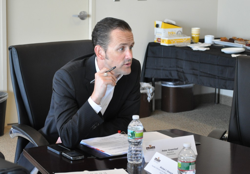 Peter Greenleaf Peter Greenleaf
Peter Greenleaf visited the Department of Business and Economic Development recently to oversee the historic tax credit auction that raised $84 million for the state’s InvestMaryland program. Greenleaf took some time out from his duties as chairman of the Maryland Venture Fund Authority for a quick Q&A about his day job — running MedImmune, one of Maryland’s most successful life sciences companies.
back to top 
 Pharmaceutical giants AstraZeneca PLC and Amgen Inc. just announced a deal to co-develop and co-commercialize five product candidates, all monoclonal antibodies. No surprise here: LLC – AZ’s Gaithersburg-based biologics arm that specializes in antibody-based products — will be taking on a good deal of the work. Pharmaceutical giants AstraZeneca PLC and Amgen Inc. just announced a deal to co-develop and co-commercialize five product candidates, all monoclonal antibodies. No surprise here: LLC – AZ’s Gaithersburg-based biologics arm that specializes in antibody-based products — will be taking on a good deal of the work.
The Maryland biotech took the lead on negotiating the transaction with Amgen and will lead the development of three of the five compounds, President Peter Greenleaf said in an interview Monday afternoon.
back to top 

Fuad El-Hibri has started a financial consulting business. He’s started telecommunications businesses.
But his most challenging venture has been the Rockville biotech he helped launch 14 years ago.
Still, El-Hibri — CEO and board chairman of Emergent BioSolutions — says the challenges are worth it, because the rewards are so great from protecting and saving lives.
back to top 

For scientists pursuing careers in biotech, clusters of life science-related companies and research institutions in the eastern United States may be a promising place to look for jobs. These so-called bioclusters have a 30-year history in the region and, in recent years, have seen an uptick in active support from academic institutions and state and local governments. We focus on three leaders in the region, the bioclusters in Massachusetts, Maryland/Washington, DC, and North Carolina. By Shawna Williams
Bioclusters have their roots in a pair of 1980 government decisions, explains Peter Abair, head of economic development and global affairs at the Massachusetts Biotechnology Council, an industry group. One of these, the Bayh-Dole Act, for the first time allowed discoveries made with federal dollars to be licensed for commercial purposes. The other was a Supreme Court decision that DNA could be patented.
back to top 
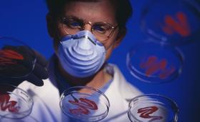
Surprise, surprise — Johns Hopkins University spent more money on medical, science and engineering research than any other university in fiscal 2010.
Hopkins topped the research and development spending list, compiled by the National Science Foundation , for the 32nd consecutive year. The 2010 data is the most recent available.
Hopkins also tops the foundation’s list for federally funded research and development.
back to top 

Following a considerable contraction in investment dollars in 2008 and 2009, the U.S. angel investor market continued to recover in 2011, a trend that began in 2010 in investment dollars and in the number of investments, according to the 2011 Angel Market Analysis released by the Center for Venture Research at the University of New Hampshire.
Total investments in 2011 were $22.5 billion, an increase of 12.1 percent over 2010 when investments totaled $20.1 billion. A total of 66,230 entrepreneurial ventures received angel funding in 2011, an increase of 7.3 percent over 2010 investments, and the number of active investors in 2011 reached 318,480 individuals, a substantial growth of 20 percent from 2010.
back to top 
 U.S. Senator Barbara A. Mikulski (D-Md.) U.S. Senator Barbara A. Mikulski (D-Md.)
U.S. Senator Barbara A. Mikulski (D-Md.), a senior member of the Senate Appropriations Committee, today spoke out in support of Maryland's health research and innovation economy at a fiscal year 2013 oversight and budgetary hearing of the Senate Appropriations Subcommittee on Labor, Health, and Human Services, Education, and Related Agencies for the National Institutes of Health (NIH). The hearing included testimony from NIH Director Dr. Francis Collins, MD.
"I am for being frugal but we must not jeopardize or hamper America's gold standard as the worldwide leader in medical research and innovation," Senator Mikulski said. "NIH invests in the best and brightest scientific minds at universities, in the public and private sector, and with our federal employees."
back to top 

On March 30, the University of Maryland launches its expanding lineup of competitions and activities devoted to innovation, ingenuity and ideas: 30 Days of EnTERPreneurship. Nearly a quarter-million dollars in prizes will be awarded at six events involving UMD faculty, students and alums.
The events honor the best in entrepreneurship at all stages of innovation - from invention to business plans to start-ups. Celebrants will include Gov. Martin O'Malley and one of Maryland's most successful entrepreneurs, Kevin Plank '96, founder and CEO of Under Armour.
back to top 

The MdBio Foundation, Inc., a private charitable organization that is an affiliate of the Tech Council of Maryland (TCM), today announced that it has received an unrestricted donation of $75,000 from MedImmune, the Gaithersburg, Md.-based global biologics arm of AstraZeneca.
MdBio Foundation will use the donation to support operation of the MdBioLab, its popular mobile bioscience laboratory that travels to schools across Maryland, and development of MdBioSphere™, an innovative interactive digital game that is being designed to enhance high school biology education and awareness.
back to top 

An initiative aimed at helping Maryland research universities better commercialize technology developments received initial approval by both houses of the General Assembly.
The Maryland Innovation Initiative could provide early funding for tech transfer efforts and encourages collaboration between the University System of Maryland , Johns Hopkins University and Morgan State University . The House of Delegates approved the measure (HB 442) and the Senate approved its companion bill (SB 239).
back to top 

Three student groups from Johns Hopkins University are among the 42 teams hailing from some of the world's top universities who will vie for more than $1 million in prizes at the 12th annual Rice Business Plan Competition (RBPC) April 12-14.
The teams for this year's competition were chosen from more than 400 entrants based on their executive summaries to compete in six categories: life sciences; information technology; energy and clean technology; green technology, renewable and recycling; social; and other. The teams will have 15 minutes to present business plans in the competition for the grand prize valued at more than $460,000 and the opportunity to ring the closing bell at NASDAQ OMX this fall. Judges will rank the presentations based on which company they would most likely invest in.
back to top 

Venture giant New Enterprise Associates filed paperwork Monday morning signaling plans to raise a 14th fund of as much as $2.3 billion.
The Securities and Exchange Commission filing by NEA comes two years after it closed a $2.5 billion fund.
back to top 

Loyola University in Baltimore, Maryland and Wasabi Ventures, a venture capital company in San Mateo, California, have begun a new-business accelerator near the university’s campus. As part of the collaboration, Wasabi’s co-founder Thomas “T.K.” Kuegler, a 1994 Loyola graduate, will serve as the university’s entrepreneur-in-residence.
Loyola says the accelerator will provide opportunities for its students and help the surrounding community. “It creates new opportunities for our students to think creatively about new products, new markets, and the types of business, marketing, and expansion plans that will help young companies grow, and to apply these ideas to real-world organizations and the entrepreneurs behind them,” says Rev. Brian Linnane, Loyola’s president. “For those with an entrepreneurial spirit of their own, it can give them a chance to get their own businesses off the ground.”
back to top 

When the Human Genome Project got underway in 1990 it was expected to take 15 years to sequence the over 3 billion chemical base pairs that spell out our genetic code. In true Moore’s Law tradition the emergence of faster and more efficient sequencing technologies along the way led to the Project’s early completion in 2003. Today, 22 years after scientists first committed to the audacious goal of sequencing the genome, the next generation of sequencers are setting their sites much higher.
About a thousand times higher.
back to top 

Dr. Charles Hamner has been researching the nanotechnology industry since, as he puts it, “before they called it nanotechnology.”
But he says it’s not an industry – “It’s a community, because the technology is going to spread across all industries,” particularly into biotechnology.
Nanotech deals with small particles, at the molecular level, and is applied by companies to create technological innovation. An example is Liquidia, a biotech that uses the nanoparticles in its vaccines.
back to top 
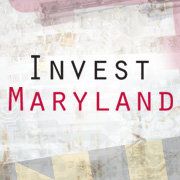
Maryland has chosen a London firm to oversee the selection of venture capital firms interested in making investments in young state companies through the InvestMaryland program.
Altius Associates was tapped to ensure the process is open and transparent and not influenced by the state, the Maryland Department of Business and Economic Development said in a statement.
back to top 
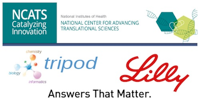
Over the past decade, collaborative research efforts to support the discovery and development of medicines has increased dramatically. Last month, the National Institutes of Health and Eli Lilly and Company announced a new collaboration: they will generate a publicly available resource to profile the effects of thousands of approved and investigational medicines in a variety of advanced disease-relevant testing systems [1]. In-depth knowledge of the biological profiles of these medicines may enable researchers to better predict treatment outcomes, improve drug development, and lead to more specific and effective approaches.
back to top 

Back in the old days of biotech, the business was pretty straightforward. You’d craft your scientific idea, aim a new drug at patients in need, charm investors to give you some money, run bang-up clinical trials, win FDA approval. Do all that, and you’re good as gold. Charge insurers whatever the market will bear, and count the money.
That model worked for a long time, but there’s another hoop everyone needs to jump through now, and I’m not sure everyone in the industry has fully come to terms with it. No matter what happens with President Obama’s healthcare reform in the Supreme Court or Congress, there are forces now that limit what society will pay for new drugs. We don’t have actual price controls in the law, but the pressure to wring costs out of the $2.6 trillion U.S. healthcare system is intense and will only grow as the baby boomers get older. Drugmakers can’t duck and hide from this issue anymore.
back to top 

Companies like Starbucks (NASDAQ:SBUX), Amazon.com (NASDAQ:AMZN) and Apple (NASDAQ:AAPL) aren’t healthcare companies, but one venture capitalist believes their example can guide personalized medicine.
Bob Kocher, a partner at venture capital firm Venrock, said that these consumer-focused companies have all taken steps toward personalizing their offerings. Personalization increases the value of those offerings and helps the companies make delivery of services and products more efficient.
back to top 
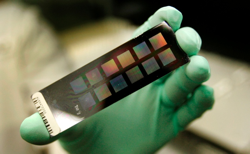
Gene scans for everyone? Not so fast. New research suggests that for the average person, decoding your own DNA may not turn out to be a really useful crystal ball for future health.
Today, scientists map entire genomes mostly for research, as they study which genetic mutations play a role in different diseases. Or they use it to try to diagnose mystery illnesses that plague families. It's different from getting a genetic test to see if you carry, say, a particular cancer-causing gene.
But as genome mapping gets faster and cheaper, scientists and consumers have wondered about possible broader use: Would finding all the glitches hidden in your DNA predict which diseases you'll face decades later?
back to top 

Shares in AstraZeneca ticked up after the Anglo-Swedish drugs giant announced a tie-up with biotechnology giant Amgen to develop and commercialise five treatments.
Under the terms of the agreement, Astra will make a one-off upfront payment of $50m and the companies will share costs and profits on the drugs for a variety of inflammatory, respiratory and auto-immune diseases.
back to top 
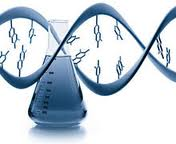
Pharmaceuticals have figured that out that if they can't be as innovative or nimble as biotechs, the next best option is to pay for their good ideas with licensing deals and acquisitions.
And what better way to identify those potential deals than to cozy up to the biotechs?
Invite them into your homes
Earlier this year, Johnson & Johnson (NYS: JNJ) opened an incubator within its San Diego campus to house biotech startups. Janssen Labs -- named after one of Johnson & Johnson's drug divisions, Janssen Pharmaceutical -- is a no-strings-attached affair with startups free either to develop the products on their own or partner with Johnson & Johnson or another company.
back to top 
|